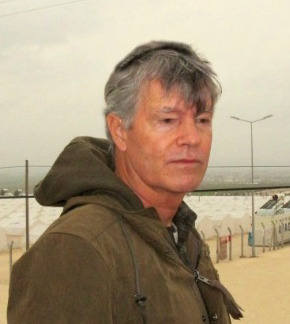Dangerous Turning Point
Last month, I visited Turkey for the first time and was reminded that my grandfather, Conrad N. Hilton, was not only an extraordinarily successful businessman, but also a citizen diplomat and humanitarian whose motto was “world peace through trade and international travel.” Sixty years ago the Hilton Istanbul Bosphorus became among the first of many […]

Last month, I visited Turkey for the first time and was reminded that my grandfather, Conrad N. Hilton, was not only an extraordinarily successful businessman, but also a citizen diplomat and humanitarian whose motto was “world peace through trade and international travel.” Sixty years ago the Hilton Istanbul Bosphorus became among the first of many Hilton International hotels. Conrad personally attended the hotel’s opening in 1955 and observed in his memoirs that he hoped that the Istanbul Hilton would be “at this crossroads of the world—a friendly center where men of many nations and of good will may speak the language of peace.”
[youtube url=https://youtu.be/CLsWd5z4oMc]
Older generations of Turks with whom I met during my trip remembered what a momentous occasion the hotel’s opening was and how, in the shadow of the Second World War, it contributed to bringing Turkey and the United States closer together. My grandfather’s legacy lives on today through the foundation he established to improve the lives of the disadvantaged and vulnerable throughout the world. In my capacity as head of the Conrad N. Hilton Foundation, I traveled to Turkey, but under tragically less auspicious circumstances than those that prevailed when my grandfather visited six decades ago.
Turkey has enjoyed extraordinary progress in the past half century. It is where east meets west and where the leadership of the father of the Turkish Republic, Kemal Ataturk, drew on the cultures of both continents to shape a modern successful country in an otherwise unstable region of the world. However, we cannot take Turkey’s stability for granted. Living in a volatile neighborhood has challenges that many of us cannot imagine or choose to ignore. Among these challenges is the Syrian refugee crisis, which not only affects Turkey, but also Jordan and Lebanon. This is the largest humanitarian crisis in the world today. Close to 12 million people have been displaced by nearly four years of war in Syria—including 3.8 million who have fled to neighboring countries, with Turkey hosting the largest refugee population in the world.
My message is that this crisis is not a burden that Turkey, Lebanon or Jordan should be expected to bear alone. It should be shared by us all—not only out of humanitarian compassion, but in the interest of global security.
The wartime horrors that we see happening in Syria are only part of the story of what is going on in the region. There is a positive story as well. On my recent visit, I traveled with Hilton Foundation partners the International Medical Corps (IMC) andLuftfahrt Ohne Grenzen (LOG or Wings of Help). Along the Turkish/ Syrian border, I witnessed their remarkable work to help relieve the suffering of those who have sought shelter in refugee camps. One quarter of a million refugees are now housed in 25 camps along the border and over a million-and-a-half more are scattered throughout the country’s urban areas. This is a huge burden on Turkey, yet the country is making every effort to provide the best services possible. I witnessed first-hand how the International Medical Corps and Luftfahrt Ohne Grenzen are providing much-needed services with the relatively modest resources the Hilton Foundation has provided so far. They are working in an effective partnership led by theTurkish Government’s Disaster and Emergency Management Authority (AFAD) and including the office of the UN High Commissioner for Refugees (UNHCR), as well as other international organizations and local NGOs. Turkey has already spent over $5 billion to serve the refugees—making it the fourth largest provider of humanitarian assistance in 2014. This is putting an enormous strain on the country’s ability to address the needs of its own underserved populations. This situation is not sustainable.
Nothing short of massive international support is needed, and it is needed now. UN agencies have requested $3.7 billion for 2015 to support those displaced by the Syrian conflict, but just over half the needed funds have so far been pledged. While U.S. Government humanitarian assistance has been comparatively strong, other bilateral and private donors—including corporations with investments in the region and philanthropy—have been conspicuously absent. As UN assistance declines, human suffering grows, as does the potential for political instability in the region and beyond. Children have been especially hard-hit. The two million refugees under the age of 18, most without access to education or jobs, are at risk of becoming a lost generation—the repercussions of which are not difficult to imagine.
The UN High Commissioner for Refugees recently warned the UN Security Council that Syria’s refugee crisis is approaching a “dangerous turning point,” as nearly four million Syrians face worsening conditions living in exile. We must assist Turkey and the other neighboring countries of the region that have opened their borders to fleeing Syrian civilians, not just because it is the right thing to do from a moral perspective, but because it is also in our own interest to do so. To ignore the enormity of the suffering and the clear, urgent need for help on a large scale will only exacerbate a crisis that already threatens the stability of region and the world.
